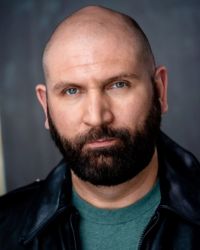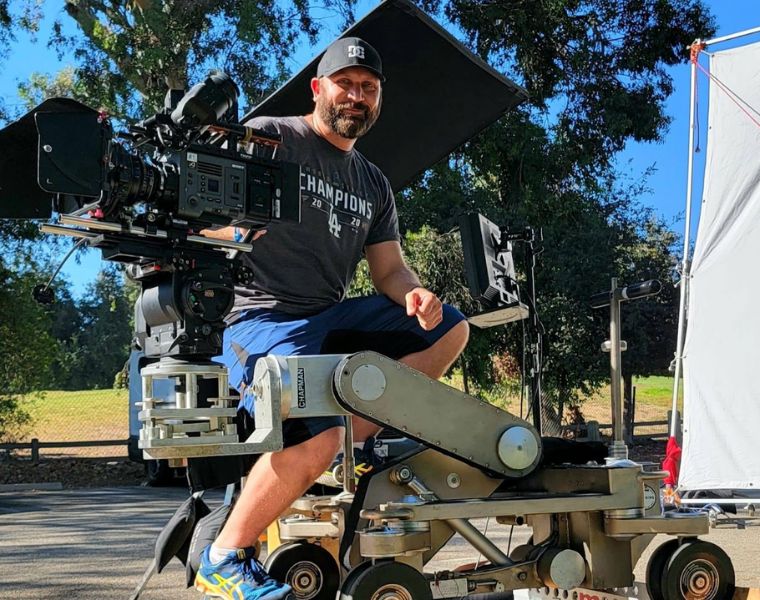After serving in the U.S. Air Force for 11 years, Master of Social Work student Joseph Paul Knable’s childhood dream of having a long career as a military officer was cut short due to medical complications. Medically retired, Knable decided to find a new dream.

With a desire to make the biggest impact he could with his career, he started working on documentary films and teaching youth, but wanted to do the work of social change firsthand—not just tell other people’s stories about it.
“I was heartbroken to read about the skyrocketing rates of suicide among teens during the [COVID-19] pandemic,” Knable said. “I thought of my students when I was a high school teacher, and I wanted to become a therapist to help as many of those kids in crisis as possible.”
His drive to pursue a career as a social worker ultimately led Knable to Case Western Reserve University’s Jack, Joseph and Morton Mandel School of Applied Social Sciences, where he hopes to earn his fourth graduate-level degree. His main passion? Preventing teen suicide and improving the mental health of young people.
Learn more about his life journey on the Mandel School website. But first, read on to get more insights into Knable’s interest in social work.
Answers have been lightly edited for clarity and length.
1. What led you to study at CWRU?
I pursued CWRU for my social work degree because it’s the best school in Ohio and the ninth best social work school in the country. I was accepted to CWRU’s law school 10 years ago but decided to continue teaching high school theater and English instead of going to law school. It’s an outstanding university in the city in which I was born and I was really looking forward to reconnecting to Cleveland after being away for a long time. Exploring issues affecting the city like the challenges faced by the people in Slavic Village has been enlightening. I love this city.
2. How have your personal experiences with overcoming adversity influenced your studies?
The biggest challenge I have faced is becoming medically disqualified from flying in the Air Force and later medically retired. Since I was a young child, I dreamed of having a long career as a military officer—I wanted to spend 30 years or more in the Air Force. My medical problem—two conditions with my internal organs—cut my military career short. My big dream had died and there was nothing I could do about that.
I apply these lessons to my practice as a social work therapist because the lesson of overcoming adversity and pressing on when life doesn’t work out the way you want it to is something that each person faces in some way or another.
3. How do you aim to apply your academic knowledge to your dream of becoming a screenwriter and filmmaker?
I have been deeply impacted by numerous documentaries and films created with care and compassion for the people whose stories the films are telling. As a social worker and therapist, armed with the excellent education I am receiving from Case Western Reserve University, I have a better grasp of social issues and solutions to improve people’s lives. I plan to make socially conscious documentaries as a social work practitioner and filmmaker that champion the stories of people marginalized by society and to tell stories that both educate people and give them hope.
4. Is there anything else you’d like to share?
Caring, competent social workers can save lives. I am grateful to be learning from some amazing professors who have done and are still doing amazing things to make the community a better place, and to study alongside wonderful classmates whom I have no doubt will go out and do the same. Social workers are a special, impactful group.

